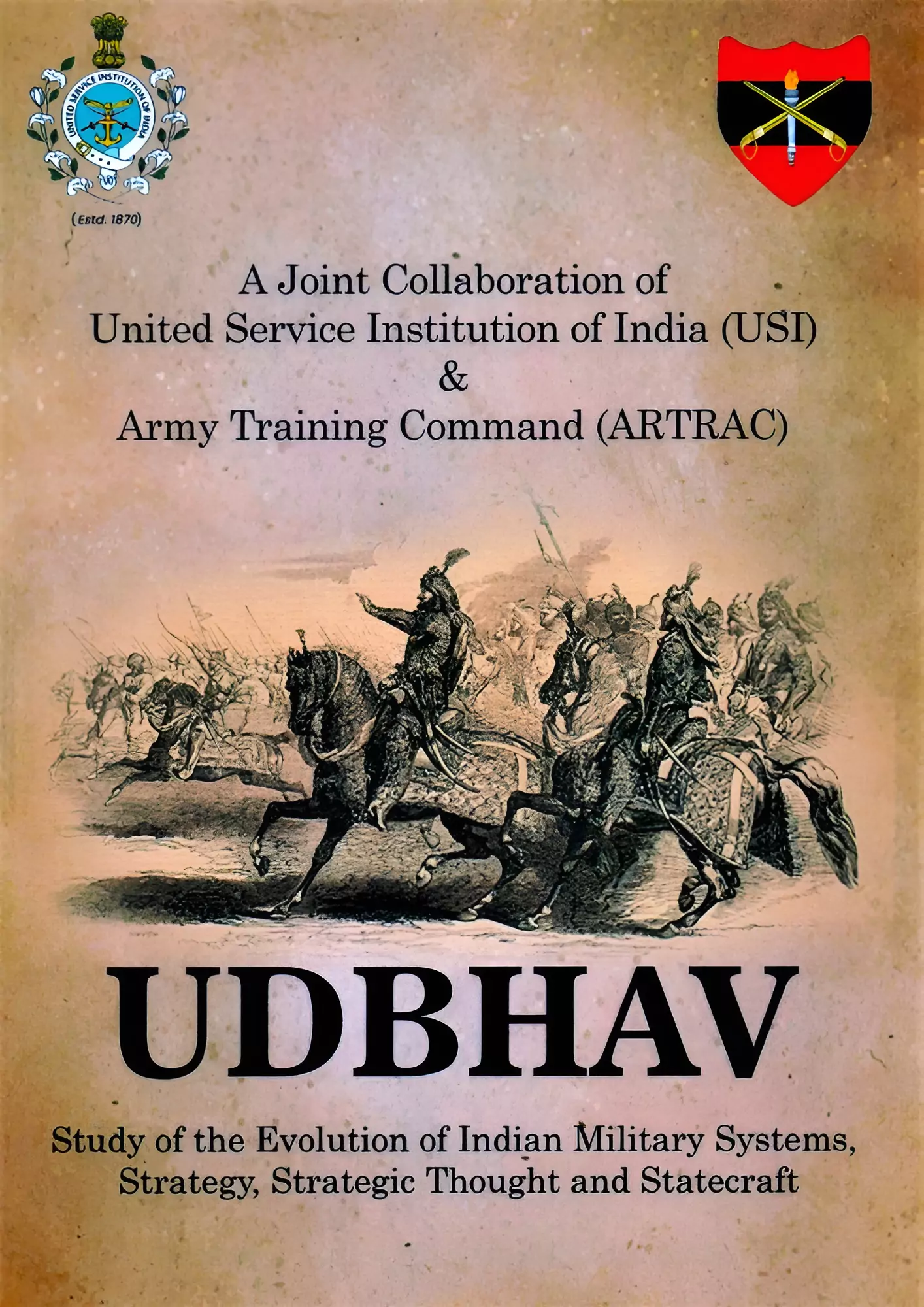Context

Recently Indian Army Chief Gen Manoj Pande in the conference titled ‘Historical Patterns in Indian Strategic Culture‘,revealed that The Indian Army, under its initiative Project Udbhav, is Exploring war tactics from vedas, puranas, and Mahabharata.
Indian Army Chief Discusses Project Udbhav
- Conference was based on the Project Udbhav to discuss the utilization of India’s rich military heritage like
- The epic battles of the Mahabharata and
- the strategic brilliance of past Indian dynasties etc to boost military capabilities of the Indian Army.
- The conference brings to conclusion the seven month long research that will facilitate in creating a knowledge pool for scholars and defense personnel for further studies.
Enroll now for UPSC Online Course
About Project Udbhav
- Project Udbhav ( which translates to ‘origin’ or ‘genesis’), is a collaboration between the Indian Army and the United Service Institution of India (USI).
- It acknowledges the vintage scriptures and writings of our Nation & to revisit the roots of India’s ancient military thoughts that can benefit modern military strategies.
- It was launched during the inauguration of the Indian Military Heritage Festival.
United Service Institution of India (USI).
- It is a national security and defense services think tank based in New Delhi
- It was founded in 1870 by a soldier scholar, Colonel (later Major General) Sir Charles MacGregor.
- It describes its aim as the ‘Furtherance of interest and knowledge in the art, science and literature of the defense services’.
- USI operates centers for research in various areas of national security.
|
Objective of the Project
- To synthesize ancient wisdom with contemporary military practices,
- Forging a unique and holistic approach to address modern security challenges.
- To integrate age-old wisdom with contemporary military pedagogy.
- To facilitate in-depth understanding of our knowledge systems and philosophies.
Significance of The Ancient Indian knowledge system
- It is rooted in a 5000 years old civilisational legacy, which has attached great value to knowledge; witnessed by its amazingly large body of intellectual texts, world’s largest collection of manuscripts, thinkers and schools in so many domains of knowledge.
|
Ancient & Historical Military Practices underlined under Project UDBHAV
- Chanakya’s Arthashastra : It underscores the importance of strategic partnerships, alliances and diplomacy, aligning with modern military practices such as international cooperation and soft power projection.
- Chanakya’s teachings on statecraft and warfare are studied by various institutions the world over.
- Wisdom of Thirukkural : The classical Tamil text authored by Thiruvalluvar, the Tamil philosopher, advocates ethical conduct in all endeavors, including warfare.
- This aligns with modern military codes of ethics ‘of just war’ and principles of Geneva Convention.
- A study of prominent military campaigns and leaders :
- The empires of Chandragupta Maurya, Ashoka and Cholas flourished and expanded in influence, during their times.
- Ahom Kingdom too, which successfully ruled for 600 years, repeatedly defeating the Mughals.
- The Naval Battle of Saraighat in 1671, led by Lachit Borphukan, stands as a stellar example of the use of clever diplomatic negotiations to buy time, employ psychological warfare, focus on military intelligence and exploiting the strategic weakness of the Mughals.
- Chhatrapati Shivaji and Maharaja Ranjit Singh who defeated numerically superior Mughal and Afghan invaders.
- Shivaji’s use of guerrilla tactics & foresightedness in construction of a series of Naval Forts along the Western seaboard to ward off external threats.
Enroll now for UPSC Online Classes
Current Studies by various Military Training & Management units:
- Army Training Command exploring ancient Indian Scriptures such as Arthashastra, Nitisara by Kamandaki and Mahabharata compiled the ‘Compendium of 75 Stratagems’.
- The College of Defence Management has also conducted a study to establish linkages between Indian Culture and the art of strategic thinking.
|
![]() 23 May 2024
23 May 2024
